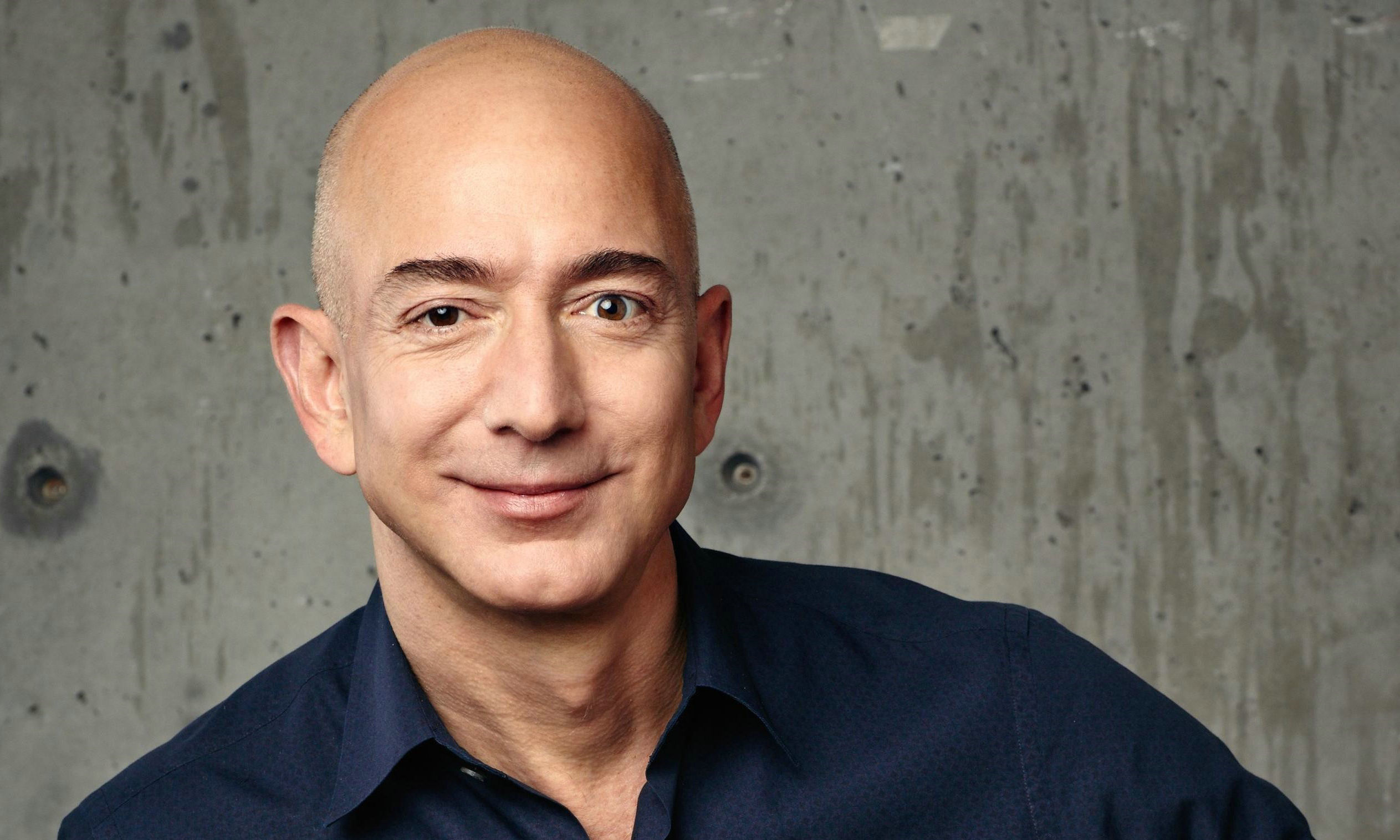In the vast galaxy of the digital world, there is such a navigator who not only predicted the future of technology but also personally drew magnificent blueprints one after another, turning dreams into reality. He is Eric Emerson Schmidt, the former CEO of Google, a legendary figure whose name is closely linked to the Internet revolution.
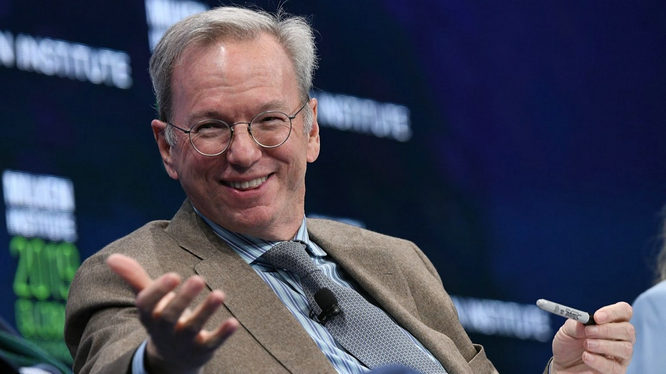
The Young Sage: Seeds of the Future Sown in the Student Years
"I always believe that education is the first spark to ignite the future." Schmidt once so lamented. His student years were precisely the moment when this spark began to burn. In 1972, Schmidt stepped into the gates of Princeton University, majoring in electrical engineering and minoring in architecture. This period of study not only laid a solid foundation in science and engineering for him but also cultivated his acute insight into the design of complex systems. In that era when computer science was just budding, Schmidt had already foreseen how technology would reshape the world, and this forward-looking vision was precisely honed from countless late-night programming and countless failed experiments.
"Beyond your comfort zone is where real learning happens." This sentence of Schmidt is a true portrayal of his continuous self-challenge during the student period. During his school years, he actively participated in various academic competitions and research projects, among which the most notable was participating in the programming work of the DEC PDP-8 minicomputer. This was his first encounter with a commercial-grade computer system and also sparked his strong interest in information technology. It was precisely these extra efforts beyond the curriculum requirements that made Schmidt stand out among his peers and also laid the groundwork for his future career.
In 1976, Schmidt entered the University of California, Berkeley to pursue a master's degree in computer science. Here, he met his life-changing mentor, Turing Award winner Butler Lampson, and a group of equally talented classmates. They jointly participated in the development of the BSD Unix operating system. This experience not only enabled him to master the core technology of the operating system but also cultivated his teamwork and project management abilities. This work later had a profound impact on the entire field of computer science, and Schmidt's name was thus closely linked to this landmark technological innovation.
According to statistics, after graduating from Berkeley, Schmidt quickly emerged in the industry and became an outstanding scientist at Bell Labs at the age of 30, and later held important positions at Sun Microsystems. These early career achievements were undoubtedly a direct reflection of his unremitting efforts and deep academic accumulation during the student years. Each step of success is the best annotation to his spirit of courageous exploration and continuous pursuit of knowledge during the student years.
Schmidt's student years were not only a process of knowledge accumulation but also a journey of character shaping. His spirit of daring to question and innovate, as well as his attitude of infinite love for technology, all originated from those fearless explorations of the unknown world back then. Just as he said, "Technology is a tool to solve problems, but the real innovation lies in how we use it." This sentence is not only an understanding of technological innovation but also a vivid interpretation of his exploration spirit during his student years.
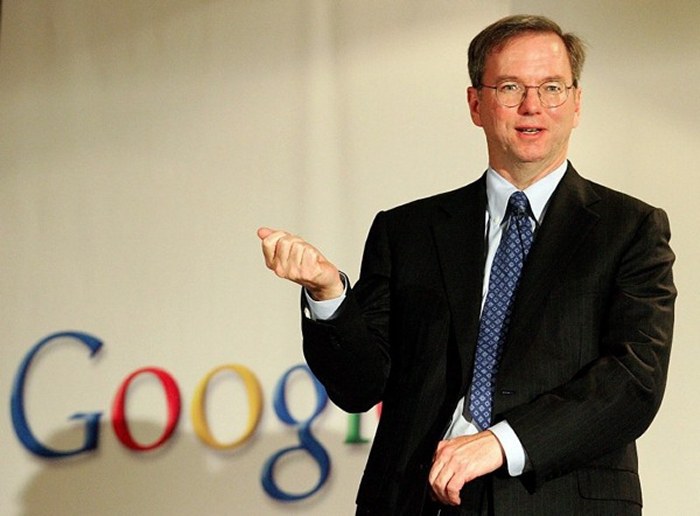
How the First Job Shaped the Tech Titan
"Every great cause begins with a brave start." - Eric Schmidt. In 1976, when computer science was still an underdeveloped blue ocean, Eric Schmidt, who had just graduated from Princeton University, with curiosity about the unknown and full of enthusiasm, stepped into the doors of Bell Labs. Here, as an intern, he not only witnessed the birth of the Unix operating system but also sharpened his technical edge in programming practice. Schmidt's job was to assist in optimizing communication software. This seemingly ordinary task taught him how to find the space for efficiency improvement in complex systems, and this skill later became one of the keys to Google's success.
"I learned the most important lesson that never be afraid of solving seemingly impossible problems." - Eric Schmidt. Schmidt's days at Bell Labs were full of challenges. A classic case is that he participated in a project aimed at reducing data transmission latency. Facing this problem that seemed almost unsolvable at that time, Schmidt did not flinch but achieved breakthrough progress through day and night code optimization. This experience not only made him deeply understand the driving force of technological innovation for social progress but also shaped the corporate culture of leading innovation and constantly pursuing speed and efficiency at Google in the future.
"Predicting the future is best done by creating it." - Eric Schmidt. The experience at Bell Labs laid a solid foundation for Schmidt's career, but his gaze had already turned to a broader world. In 1983, he joined Sun Microsystems and quickly grew from an ordinary software engineer to the company's technical leader, marking his official entry into the core circle of Silicon Valley. At Sun Microsystems, the network technology led by Schmidt paved the way for the popularization of the Internet and also laid the groundwork for his later joining and leading Google to brilliance.
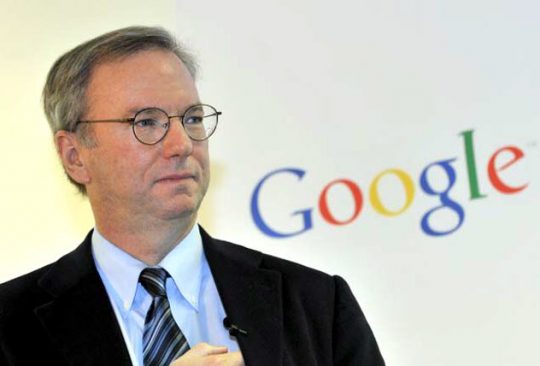
Why He Chose to Join Google
"Opportunities always favor those who remain curious about the unknown." - Eric Schmidt. At the end of the 20th century, the Internet wave was surging, and Google, this small company founded by Larry Page and Sergey Brin in their Stanford University dormitory, was quietly rising with its unique search engine technology. At that time, Eric Schmidt was already the CEO of Novell, a renowned leader in the tech industry. However, in 2001, he made a decision that shocked the industry - leaving Novell and joining Google as the chairman and CEO. The story behind it is far more profound and complex than it appears.
"I was attracted by Google's vision, that strong belief in using technology to make the world a better place." - Eric Schmidt. The reason why Eric Schmidt was deeply attracted by Google first originated from his common belief with the two founders in changing the world with technology. In a chance meeting, Page and Brin demonstrated their search engine algorithm, and its astonishing search efficiency and accuracy caught Schmidt's attention. He realized that this was not just a product but a revolutionary tool that could disrupt the way of information acquisition and promote the democratization of knowledge. Schmidt saw the huge potential hidden behind Google, which coincided with his long-pursued concept of "technology serving humanity."
Joining Google was even more a challenge and practice of his own management wisdom for Schmidt. At that time, although Google was technologically advanced, it was still inexperienced in company operation and commercialization. Schmidt used his rich experience accumulated at Novell and Sun Microsystems to introduce mature management mechanisms and business strategies for Google. For example, he led the optimization of AdWords, which greatly enhanced Google's profitability and laid the economic foundation for its subsequent rapid development. Schmidt's joining was a model of the perfect fusion of technology and business strategy, proving his correct judgment at a critical moment.

The Stormy Days at the Beginning of Google
In early 2001, when Eric Schmidt stepped into the door of Google, what awaited him was not a smooth path, but a battlefield filled with technical challenges, market competition, and internal turmoil. At that time, although Google had already stood out with its revolutionary search engine, it still faced huge uncertainties in terms of profit model, corporate governance, and scale expansion. Schmidt's arrival was regarded as an important turning point for Google from adolescence to adulthood.
"The task of a leader is to turn chaos into order, not to avoid it." This famous quote from Schmidt is a true portrayal of his mindset when facing the early challenges of Google. He deeply knew that in order to stand firm in the torrent of the Internet, these problems must be faced and solved directly.
The primary difficulty was the exploration of the profit model. At that time, although Google search was widely popular, how to turn it into tangible income was the biggest obstacle in front of Schmidt. In 2002, the launch of AdWords became a turning point. This advertising system based on keywords created a new era of online advertising and made Google's advertising revenue surge that year, achieving a magnificent transformation from a technical star to a commercial giant. Behind this initiative is a powerful proof of Schmidt's acute market insight and business model innovation.
Data shows that in the first year after the launch of AdWords, Google's advertising revenue jumped from about 86 million US dollars in 2002 to nearly 1.5 billion US dollars in 2003, with a growth rate of more than 1600%. This astonishing growth not only solved the company's survival problem, but also laid a solid foundation for subsequent scientific research investment and business expansion.
Schmidt's leadership style played a decisive role in this process. He advocated the establishment of an "adult supervision" system that focuses on both innovation and efficiency to ensure that while the company is developing rapidly, it does not lose the flexibility and creativity of the start-up period. By introducing the professional manager system, optimizing the decision-making process, and strengthening internal communication, Schmidt effectively balanced the relationship between the technical team and the commercial goal, creating an environment that can both stimulate creativity and implement efficiently.
When dealing with internal disputes and external pressures within the company, Schmidt showed superb interpersonal wisdom. "The best ideas come from the team, not from a single person." He often emphasized the importance of teamwork. By establishing a culture of trust and respect, he perfectly merged Larry Page and Sergey Brin's innovative enthusiasm with his rich management experience, forming a powerful leadership synergy.
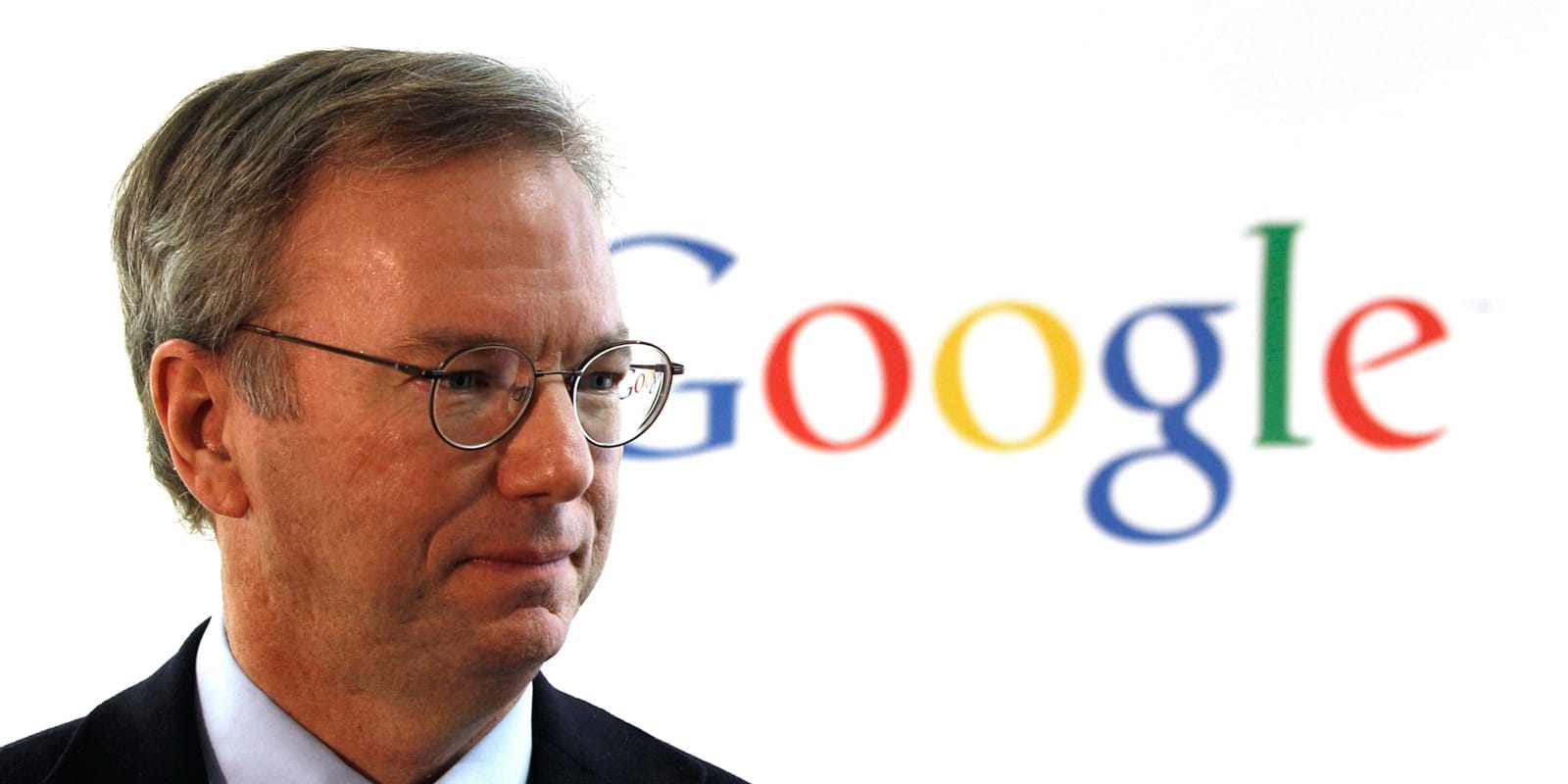
In the glorious chapter of Google
"The best way to predict the future is to create it." — Eric Schmidt. In 2001, during the post-bubble winter period of the Internet, Eric Schmidt was entrusted with a critical mission and joined the young Google. At that time, although Google had already stood out with its innovative search engine technology, it faced a huge challenge of how to turn technological advantages into commercial success. Schmidt's arrival was like a warm current, melting the frozen market and opening the spring of Google.
The AdWords revolution: Schmidt acutely perceived that the true value of the search engine lies in connecting businesses and consumers. Under his promotion, Google AdWords came into being and quickly became the main source of the company's income. By precisely matching advertisements with user queries, Google not only opened a new door for efficient marketing for businesses, but also created a continuous cash flow for itself. According to statistics, by 2008, AdWords accounted for about 99% of Google's total revenue, completely changing the pattern of online advertising.
The far-sighted layout of Android: In 2005, Schmidt led the acquisition of the then-obscure Android Inc. This decision was controversial at that time, but it later proved to be a masterstroke of Google's layout in the mobile Internet. Today, the Android operating system has become the largest mobile operating system in the global market share, covering billions of devices and completely changing people's lifestyles.
Corporate culture: Under Schmidt's leadership, Google not only made rapid progress in business, but also its unique corporate culture became a talk of the industry. The principle of "Don't be evil" and the "20% time" policy that encourages employee innovation attracted top talents from around the world and built a sustainable innovation ecosystem.
"Leadership means being able to see the future and having the courage to realize it." — Eric Schmidt. Schmidt's success at Google is largely attributed to his accurate grasp of technological trends and deep understanding of market dynamics. He deeply knew that the ultimate purpose of technology is to serve humanity, so he always adhered to the user-centered approach and continuously optimized the product experience. At the same time, he emphasized teamwork and open innovation, encouraging talents from different backgrounds to collide ideas and inspire creative sparks.

Looking forward to unlimited possibilities
Schmidt is not only a practitioner, but also a thought leader. In his book "The New Digital Age" co-authored with others, he predicted: "In the future, information will be so abundant that the most important thing is not the acquisition of information, but the screening of information." This assertion foresaw the arrival of the big data era, reminding us to remain sober in the face of massive information and learn to screen and utilize.
"Innovation is the ability to connect things." This sentence from Schmidt is not only a praise of individual creativity, but also a core summary of Google's culture. In his view, true innovation is not an isolated technological breakthrough, but the perfect integration of technology, humanity, and business. Under this concept, products such as Google Maps, Gmail, and Android have come out one after another, deeply changing people's lifestyles.
Today, although Schmidt is no longer the daily manager of Google, his role as an investor, advisor, and thought leader continues to influence the technology industry. Each of his public speeches and each exploration of frontier fields such as artificial intelligence and quantum computing is painting a more intelligent and connected future picture for us.
The story of Eric Emerson Schmidt is a symphony of courage and wisdom, a harmonious movement of technology and humanity. In this era of rapid change, he is not only a witness, but also a leader, telling us with actions that in the unknown journey, only by continuous innovation can we embrace unlimited possibilities.
